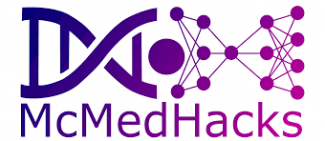Week 2 – Intro to deep learning (June 19th at 10:00-11:30 EST):
Speaker: Dr. Roy Keyes
The past, present, and future of machine learning in medical imaging and related applications.
Speaker: Dr. Renata Raidou
In this talk, I will discuss recent visual analytics (VA) approaches that support the personalization, predictiveness and prevention aspects within the context of prostate cancer radiotherapy–empowering clinical research with new possibilities for more targeted and robust patient treatment. VA combines automated analysis techniques (such as machine learning or statistics) with interactive visualizations, to support understanding, reasoning, and decision making in complex and big datasets. In my work, I design strategies that complement the strengths of computing (fast calculations, complex algorithms, automated analysis approaches) with the strengths of a human expert (knowledge and training, experience, mental models, perception, and cognition), with the purpose of providing a higher level of insight into the data, the underlying processes, or even the employed algorithms. I will converse about the need for such sophisticated, interactive approaches within clinical environments and their benefits for patient treatment. I will also share my personal experience as a visual analytics researcher and the lessons learnt in a long-lasting collaboration with several clinical and industrial partners.
Workshop 2 – Introduction to deep learning (June 20th at 10:00-11:30 EST)
Instructor: Ximeng Mao
This workshop is aiming to provide you with the basics of deep learning. We will discuss two important deep learning models, namely feed-forward neural network and convolutional neural network, as well as other concepts concerning the training of these models (such as optimizer and loss function). We will also talk about various applications of deep learning in the medical imaging domain and popular networks used in those applications. The introductions will be complemented with code in PyTorch, one of the most popular deep learning frameworks in Python, and we will include a demonstration of a full training loop in PyTorch to classify hand-written digit images. At the end of the workshop, you could have a general understanding of deep learning and several of its key building blocks, its use in the medical image domain, and how to implement a deep learning model in Python.


